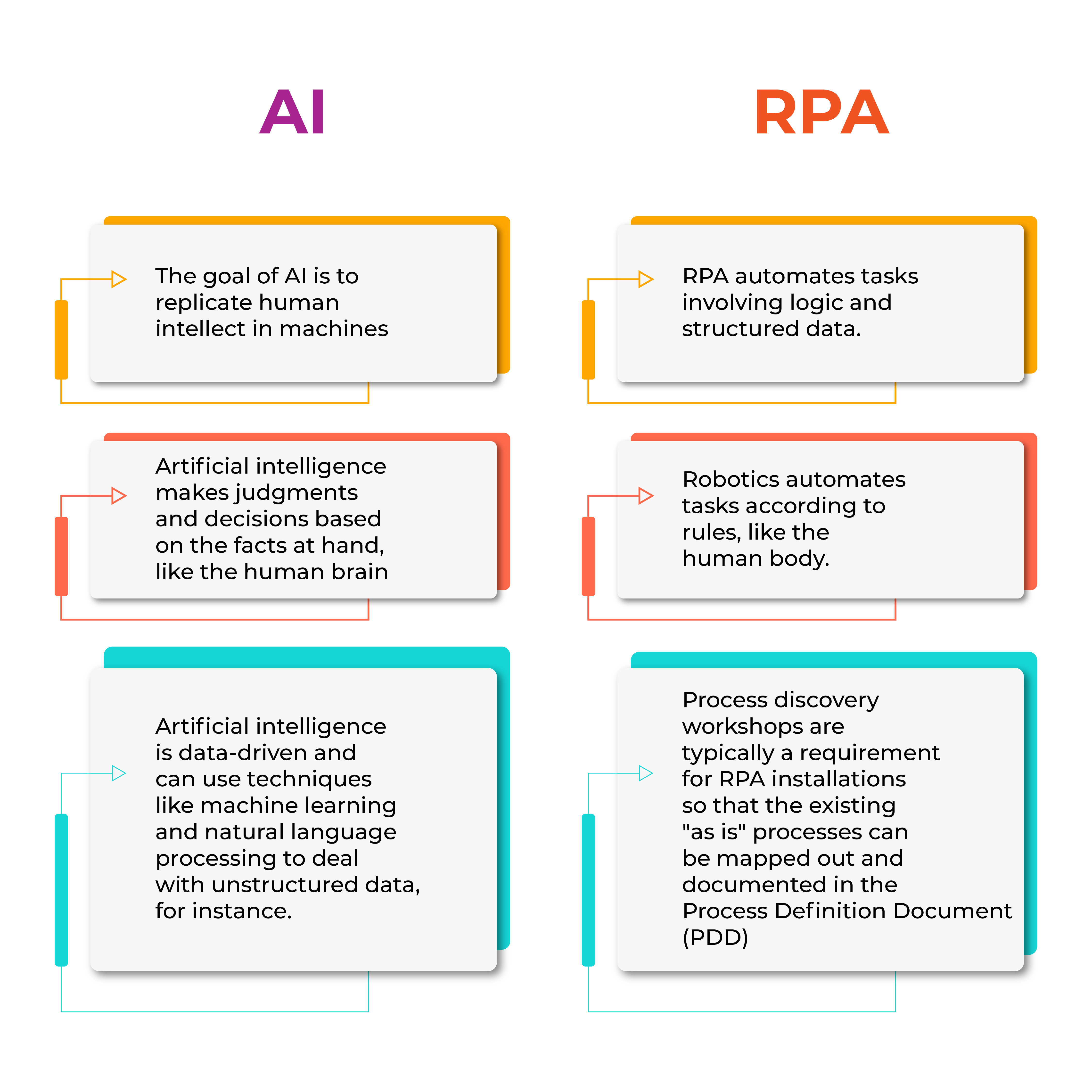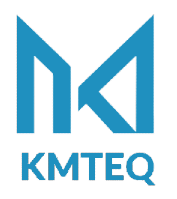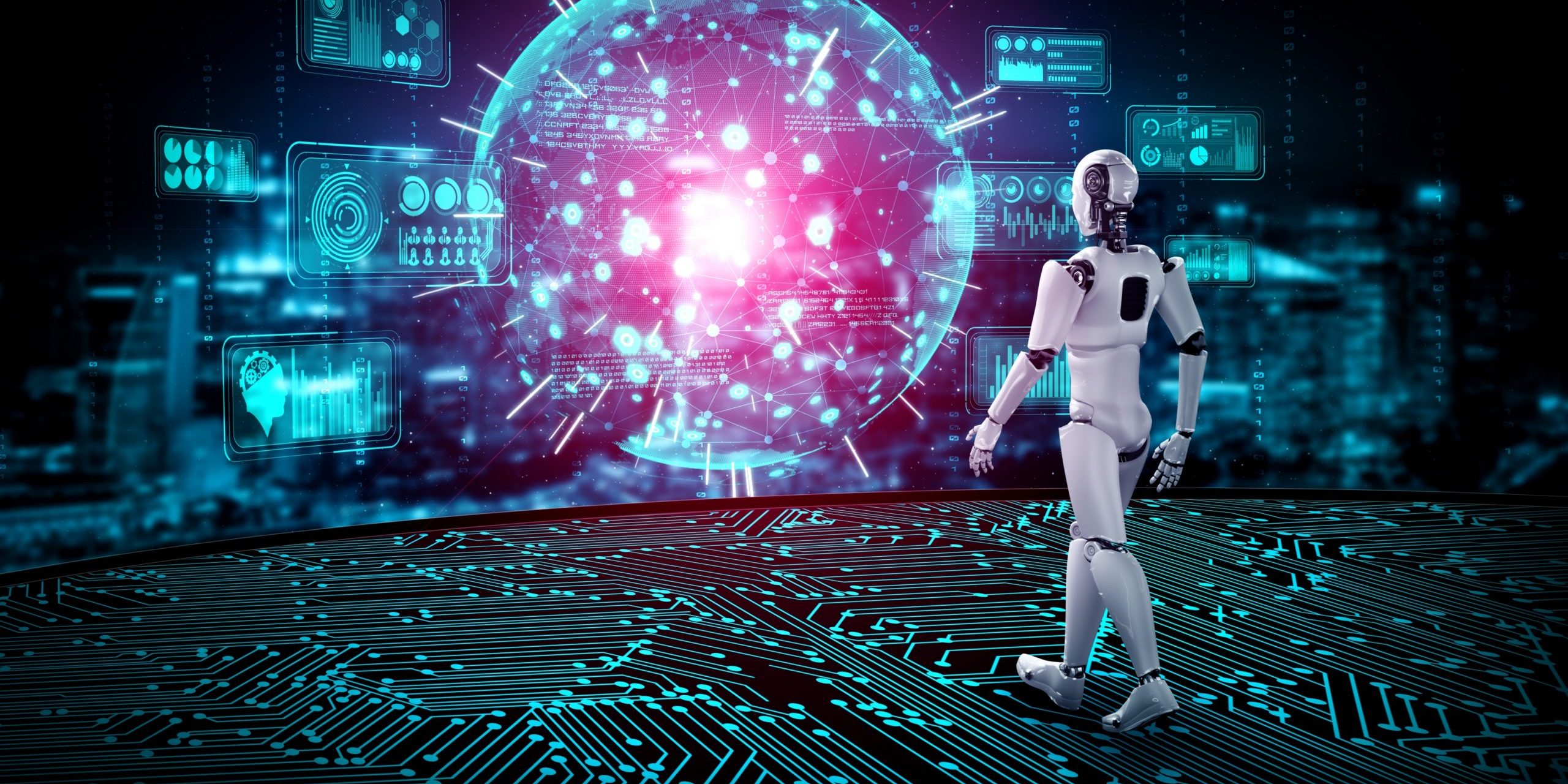What are RPA and AI solutions?
Robotic Process Automation (RPA) deals with using Specialized computer programs or “robots” to automate repetitive tasks. RPA performs consistently, they don’t acquire new skills via repeated practice, and they are unable to innovate or come up with a better way to complete the task they have been given. RPA tools carry out very logical functions without the knowledge or human comprehension. Every company has quick, repetitive manual operations that could benefit from RPA, but those in the banking, financial services, insurance, and telecom sectors have been using it most frequently.
Artificial intelligence (AI) is the mimicking of cognitive processes in humans by digital “machines.” Learning, thinking, and self-correction are some of these processes. Popular uses of AI include sentiment analysis, chatbots, natural language creation, speech recognition, picture recognition, and machine vision.
Both RPA and AI Solutions are two of the best technologies for businesses to use to accomplish the ostensibly contradictory tasks of boosting staff morale and customer happiness while cutting expenses. Every industry has duties that are susceptible to being entangled in data, verification, and analysis. You can automate those operations using RPA and AI, which will give your human workers more time to work on initiatives with more significant effect.
The difference between RPA and AI:

Thus, the difference between RPA and AI is that only one of them is able to accomplish tasks with a modicum of human intellect.
What can be achieved with RPA and AI Integration?
- When RPA and AI are integrated, the automation process can start considerably more quickly, resulting in an automation continuum.
- When integrating RPA and AI results in Intelligent Process Automation (IPA). It’s an innovative business process and workflow that learns and adapts itself using four core technologies – Robotic Process Automation (RPA), Artificial Intelligence (AI), Machine Learning, and Natural Language Processing (NLP).
- RPA can perform more cognitive activities by integrating with AI as opposed to straightforward step-by-step procedures that demand no thought or decision-making. By incorporating a more “human” response into the workflow, AI enables simple automation to evolve into something much more complicated.
- With RPA and AI integration, end-to-end automation is boosted, which is key to providing self-service options for customers.
- Robots can solve contradictions, negotiate uncertainty, and accomplish cognitive tasks with the aid of AI. And the more independent thinking and understanding robots possess, the more they are capable. The quicker they can complete it Furthermore, the more of an impact they can have.
- With RPA and AI integration, RPA should be able to catch exceptions and correlate patterns or events to expected or unexpected opportunities and risks since AI can use predictive analytics to learn to think, learn, and project. As a result, firms are more equipped to consider and react to emerging markets and behaviors.
Follow us on LinkedIn for more such updates!

